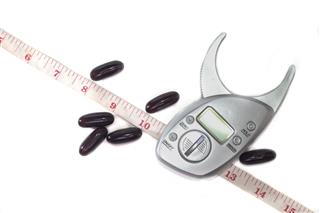High pulse rate is a condition, in which the heart beats at an abnormally fast rate. Though, it need not be life-threatening in all the cases, it is something that needs to be looked into immediately.
Did you know…
Chocolate raises the heartbeat from 60 beats/minute to 140 beats/minute.
In medical terms, high pulse rate is termed as tachycardia, which refers to a heart beating at a higher rate than usual. The normal pulse rate for human beings, in resting condition, is about 60 – 100 beats per minute (BPM). The pulse rate falls to about 40 BPM while the person is sleeping. When the pulse rate exceeds 100 BPM, generally oscillating between 140 to 180 BPM, but may even rise to as high as 250 BPM.
As mentioned above, when the pulse rate rises above 100 BPM, the condition is termed as a high pulse rate or tachycardia. It is directly concerned with the inability of the heart to pump the blood efficiently. This is because when the heart beats at a high rate, the heart is not able to contract and relax properly, which in turn affects the amount of blood being pumped to the different parts of the body.
Tachycardia is classified into two forms, depending upon its occurrence in the heart. If it starts in the ventricles, it is termed as ventricular tachycardia, or simply V-tach. If the rapid pumping occurs above the ventricles, in the upper part of the heart, it is termed as supra-ventricular tachycardia (SVT). SVT is the most common form of tachycardia and has less potential of inducing harmful effects. However, cases of persistent SVT should be reported to the physician.
High pulse rate can be caused by a medical condition, or can be caused by temporary factors, which should not be a major cause for concern.
A high pulse rate is not something to be worried about. It is bound to fluctuate several times a day during routine activities. These factors stimulate the heart to beat at a faster rate only for a short period of time. Once the cause is eliminated, the heart resumes its normal pace. These temporary causes are as follows:
♦ Strenuous exercise
♦ Stress, anxiety, fear
♦ Nightmares
♦ Smoking
♦ Fever
♦ Heavy meals
♦ Blood loss
♦ Certain medicines
♦ Vitamin deficiency
♦ Electrolyte imbalance during illnesses.
♦ Consumption of chocolate/alcohol
♦ Intake of stimulating substances such as tea/coffee
During pregnancy, the heart of a pregnant woman has the additional responsibility of pumping blood to the growing fetus. This increase in demand causes the heart to work extra hard and pump at a faster rate to meet the increased demand. Thus, during pregnancy, the pulse rate recorded will be higher by 10-20 beats/minute. But, this will come back to the normal level once the baby is born.
Various medical conditions can cause the pulse rate to escalate. The different medical conditions that cause the heart rate to rise are as follows:
Heart Diseases
Most people who complain of high or rapid pulse rate, often suffer from some or the other heart disease. Heart ailments such as coronary heart diseases, hypertension (high blood pressure), pericarditis, congenital heart diseases, aortic regurgitation, etc., are likely to give rise to a higher pulse rate. The hardening of arteries or the faulty heart valves lead to difficulty in pumping, thereby increasing the pulse rate.
Thyroid Malfunction
Overactive thyroid gland is known to be responsible for elevation of pulse rate. Thyroid gland is responsible for controlling the metabolism, in the body. Hence, its over performance often interferes with the normal metabolism of the body. This, in some way causes the heart to increase its pumping rate, which eventually leads to a higher pulse rate. If hyperthyroidism is the cause for rise in pulse rate, the patient will experience symptoms like sweating, tremors, anxiety, lack of sleep, etc.
Faulty Upper Heart Chamber
Emphysema
Pneumonia
High pulse rate is very common for heart attack survivors. However, people who have no known health issues, but yet experience an abnormally fast pulse rate, should immediately report it to their physician, especially if it is accompanied by symptoms such as dizziness, blurred vision, etc.
Disclaimer: This HealthHearty article is for informative purposes only, and should not be used as a replacement for the advice of a medical expert.




